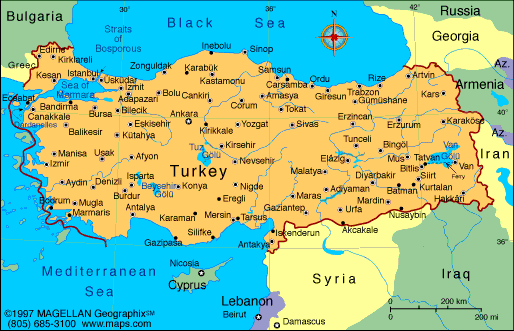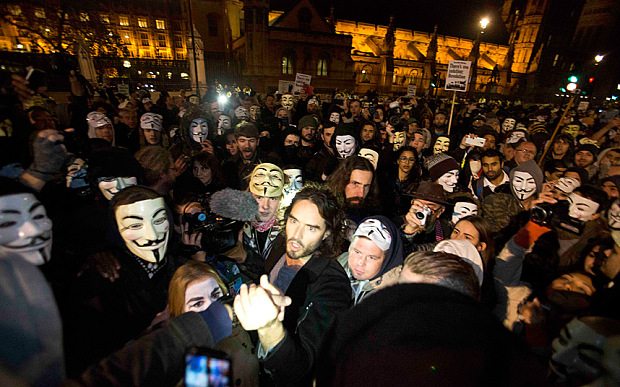I was planning to write a follow up to the latest article I wrote about Turkish-Greek cultural cooperation, which I learned had been translated and published on a number of Greek websites. However, the recent cool winds blowing in the Mediterranean changed the focus of this article.
The discovery of gas in the Mediterranean had raised hopes that diplomatic work to find a solution to the Cyprus problem could be sped up. Unfortunately, it has become an additional obstruction for settlement efforts.
Following attempts to start drilling in 2011 and 2013, both of which triggered a reaction from Turkey, Greek Cyprus once more decided to try its luck in late October, by starting exploration activities just as talks were continuing between the two communities.
It is hard to imagine that the Greek Cypriot leadership was not expecting a reaction from Ankara. Indeed, Turkey sent the Barbaros Hayrettin Paşa scientific ship to carry out seismic surveys around the same area, which was declared an exclusive economic zone (EEZ) by Greek Cyprus, disputed by Turkey and Turkish Cyprus.
Antonis Samaras of Greece and Nicos Anastasiades of South Cyprus
Greek Cypriot President Nicos Anastasiades then announced that he would not attend the peace talks.
I would not be surprised if many Turkish decision-makers are convinced that the exploration activities were authorized by Anastasiades, specifically at this time, in order to trigger a reaction from Ankara that would give him an alibi to quit the negotiations, which Turks believe he was not incredibly enthusiastic about anyway.
Meanwhile, just as third party players, like the U.N. Secretary General’s representative, were trying to find a way out from the impasse, the leaders of Greece, Greek Cyprus and Egypt recently met in Cairo to pledge greater energy cooperation in the Middle East.
Ankara refrained from making an official statement about the summit, but let their naval forces commander made an announcement that there were more assertive rules of engagement in the Mediterranean.
Now we learn that the trilateral meeting in Cairo will be followed by a new trilateral meeting between Greek Cyprus, Greece and Israel. The time of that meeting is not yet set, but Anastasiades is due to visit Israel on Dec. 2. This visit was preceded by a visit to Nicosia last week of Israeli Foreign Minister Avigdor Lieberman, who lambasted Turkey for intruding on Greek Cyprus’ EEZ.
So the picture that comes around is like this: On the one side is Turkey, whose international standing is not exactly brilliant, and on the other an alliance of Israel, Egypt and Greek Cyprus, each of which have, for the time being at least, very hostile relations with Turkey.
As someone who has been highly critical of Turkey’s foreign policy course in the past, you might think I will talk about how the government’s erroneous policies have landed Turkey in such a situation in the East Mediterranean.
Nicos Anastasiade, Antonis Samaras and Abdel Fatah el-Sisi
Indeed, Turkey is partly responsible for the picture in which you can see Egypt’s former military leader, now President Abdel Fatah el-Sisi standing between Greek Prime Minister Antonis Samaras and Anastasiades.
I can understand Greek Cyprus’ futile effort to forge an alliance with Egypt and Israel up to a certain point, but Greece? Tension in the Aegean has never served Athens. The last decade is a testament to how Greece has benefited from engaging with Turkey.
Let’s suppose Turkey’s policy on the issue is totally wrong. Even so, is it the right course for Greece to go and pose together with a coup leader just to support Greek Cypriots? Does the Greek government seriously think an alliance with Israel and Egypt will frighten and deter Turkey? Couldn’t Greece surprise us and work as a silent mediator to defuse the tension?
Greece has more to benefit from cooperating with a semi-democracy like Turkey than a dictatorship like Egypt, or Israel, which is increasingly being isolated by the European Union.
In addition, Turkey may have temporary strains in its relations with Israel and Egypt, but the moment is there for normalization; both Tel Aviv and Cario have ties with Ankara that will always outweigh those with Greece and Greek Cyprus, as was rightly underlined in a comment published yesterday in the Cyprus Mail titled “Realism needed on the power of regional agreement.”
I am still optimistic that the Turkish-Greek reconciliation will stand strong against this new wave of tension.
It’s good to know that just as the foreign ministers of Greece, Greek Cyprus and Egypt were meeting in Nicosia to prepare for the Cairo summit, the Greeks were attending a Turkish film week in Athens. Meanwhile, just as the two countries’ naval officers issued statements over the weekend about new rules of engagement in the Mediterranean, Turks were attending the Athens marathon on Nov. 9. In addition, the Turkish economy minister and the Greek development minister will be attending a business forum this week in İzmir; while as Israel prepares to welcome Anastasiades on Dec. 2, Turkish Prime Minister Ahmet Davutoğlu is set to visit Athens on Dec. 4.
November/11/2014
BARÇIN YİNANÇ
barcin.yinanc@hurriyet.com.tr
Kufi Seydali
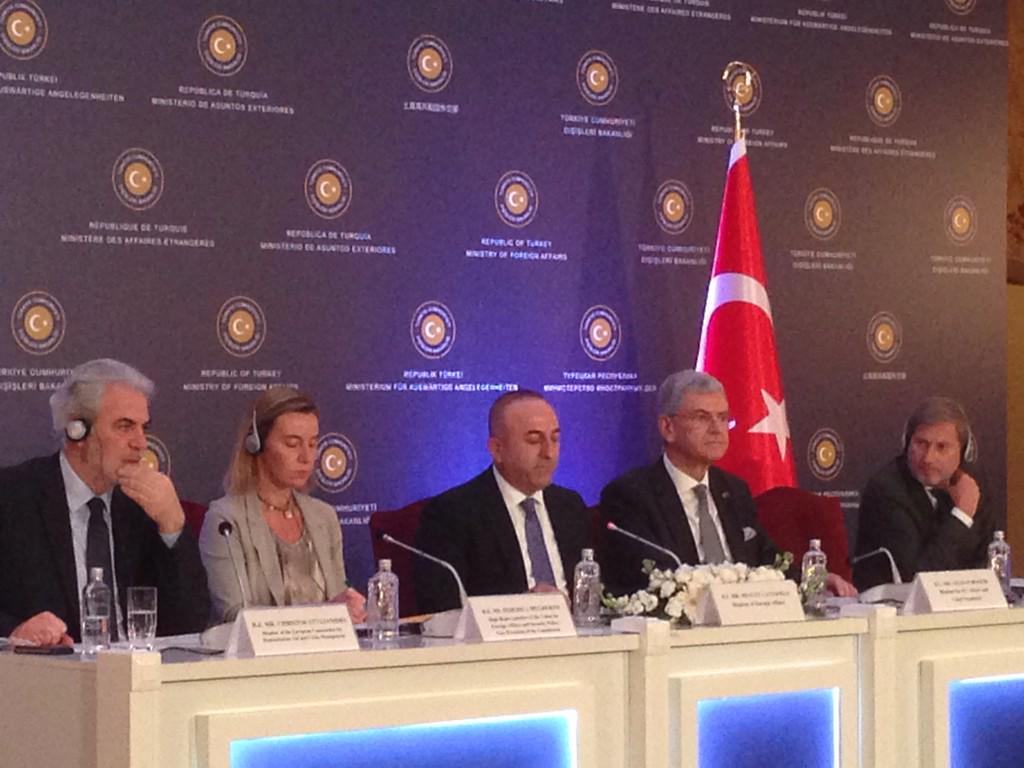

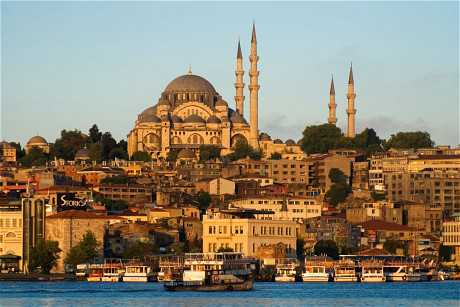
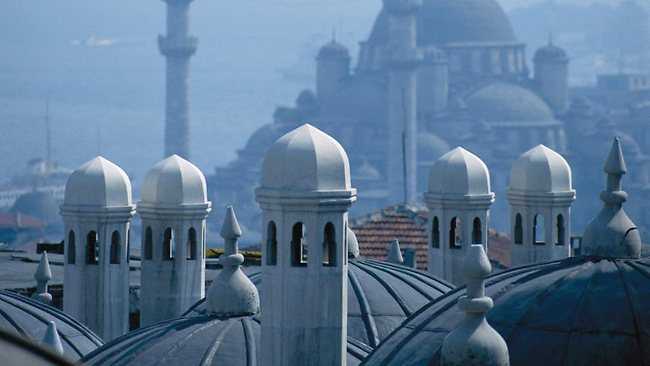

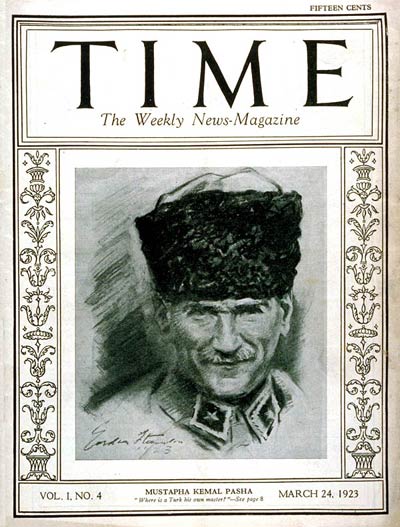 1923
1923